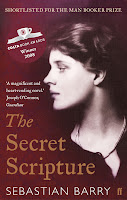
Since the spectacular success of Dr Read’s literary medicine - helped by the odd glass of G&T - on Lit Ward 10, his Specialist Registrar, Dr. de Licious and Staff Nurse Gorgeous had volunteered to take on the extra duty of selecting suitable medication but now the new Chief Exec had insisted he be on the selection panel.
‘Now what evidence base do you have for this book stuff?’ he asked.
Dr Read handed him a print out of Lit Ward 10 outcomes.
‘With the government trying to close libraries and the NHS, we must do all we can to fight these disastrous decisions,’ Dr Read explained. ‘This is the only dedicated adult Literary Ward in the country and so far we’ve excellent outcomes.’
‘Yes, there has been some success I’ll admit, but evidence based practice is the pillar of clinical governance...’ mumbled the Chief Exec. He hadn’t read a novel since he was at school. He vaguely recalled something called
1984. Or was in 1984 that he last read a book? He couldn’t quite remember.
‘
The Reader Organisation and
InterAct Reading Service both have anecdotal evidence of literature helping recovery from illness,’ added Dr de Licious. 'As well of course as
Read Well for children.' He couldn't miss them out although he knew Dr Read had been a bit upset to find that name had already been taken.
After reading about
Friern Barnet Community Library in leafy North London, reclaimed from closure by the community and reopened with 10,000 donated books, Dr Read’s appeal for books had been similarly overwhelmed with good books, but careful selections had to be made.
‘Can’t have this,’ yelled the Chief Exec holding up a copy of
Bring Up the Bodies. 'Gives quite the wrong idea. Or this.’ He pointed to a copy of
Death Bed by Leigh Russell, one of Dr de Licious’s favourite thriller writers.
I Googled titles with ‘health’ in them’ said the Chief Exec’s assistant, ‘and I came up with
How I Scaled the North Face of the Megapurna with a Perfectly Healthy Finger But Everything Else Sprained, Broken or Bitten Off By a Pack of Mad Yaks, but it doesn’t seem to be on Amazon. I did look.’
‘That’s because it’s a fictional book,’ explained Dr de Licious slowly (he’d noted the assistant seemed to be having some kind of processing problems), while rolling his eyes at Nurse Gorgeous.
‘Exactly, That’s what Dr Read wants, isn’t it? Fictional books.’ The Chief Exec looked cross while his assistant continued to look his normal gormless self.
‘What Dr De Licious means, is that that title is a made-up book in a book,’ said Nurse Gorgeous. ‘It’s in
The Hitchhiker’s Guide to the Galaxy. Now that’s a good one for Lit Ward 10.’
‘But you said we’re having only fiction here, no travel books,’ complained the Chief Exec, who been annoyed that they’d rejected his old copy of
Guide to the Most Boring Places Where You Can Park a Caravan in England. Since his promotion to Chief Exec, he’d got rid of the caravan as he didn't think it fit his new image. ‘And we shouldn’t encourage hitch-hikers, they’re scroungers, the lot of them.’
‘Here’s a safe bet,
Pride and Prejudice.’ Nurse Gorgeous held up one of her favourites.
‘Out of the question,’ barked the Chief Exec. ‘Haven’t you done your mandatory training in Equality and Diversity? No prejudice is allowed on these premises whatsoever.’ He snatched the book and binned it. ‘My wife says there’s a book named after her,
Emma. So I think we should have that.’
‘We do have that one. It’s a very good choice.’ Nurse Gorgeous didn’t add that Jane Austen had come up with the name some 200 years ago.
‘Excellent,’ said the Chief Exec, oblivious to the fact that it was by the same author of the book he had just tossed away. ‘So what others have names in them?’
‘
Doctor Zhivago,’ suggested Dr de Licious with a slight smile.
‘But what’s he got to do with this project? He works in orthopaedics.’
‘That’s Dr Santiago.’
‘So why bring up this other chap then? We don’t have time to waste…Is there a book called Clarissa. That’s my mother’s name?’
‘Yes, there is, but I’m not sure we should include it,’ said Dr Read.
‘Why not?
‘Unless you are happy to have bed blockers.’
The Chief Exec shuddered. Bed-blockers were the bête noire of all chief executives and bed managers. ‘What’s it got to do with bed blockers?’ Really, literary types were a pain in the neck, going off at tangents all the time.
‘It’d take even the speediest reader a while to complete as the later editions are over a million words,’ said Dr Read. ‘Better for our community patients. Although I wouldn’t consider it for anyone with heart problems or any form of muscular weakness.’
The Chief Exec couldn’t see what that had to do with anything. ‘I think all our books should have names in the titles. My name’s Adrian. Is there a book called Adrian?’
‘There’s a whole series of
Adrian Mole books,’ said Dr de Licious.
‘Excellent!’ said the Chief Exec. ‘I’m sure the hero is a worthy person. I see him as a hard working, leader of people, someone who has a vision of how things should be in the 21st century. Someone like me. Is he at all like me?’
‘Two peas in a pod,’ sighed Dr Read. 'Two peas in a pod.'















